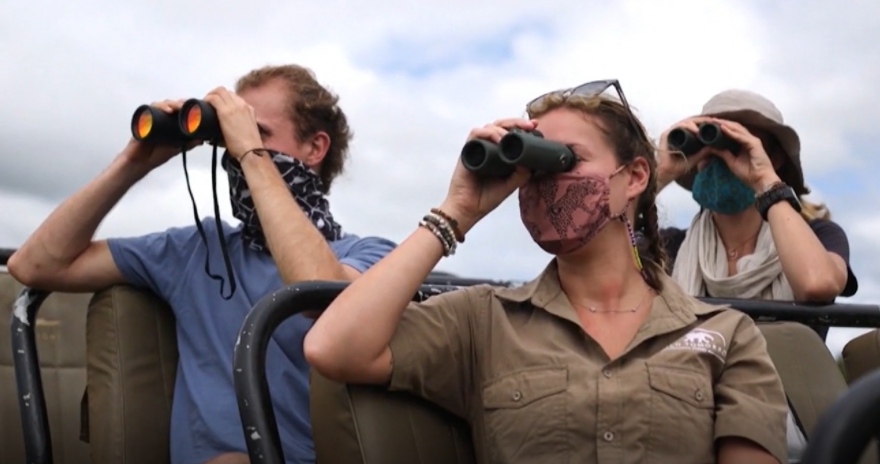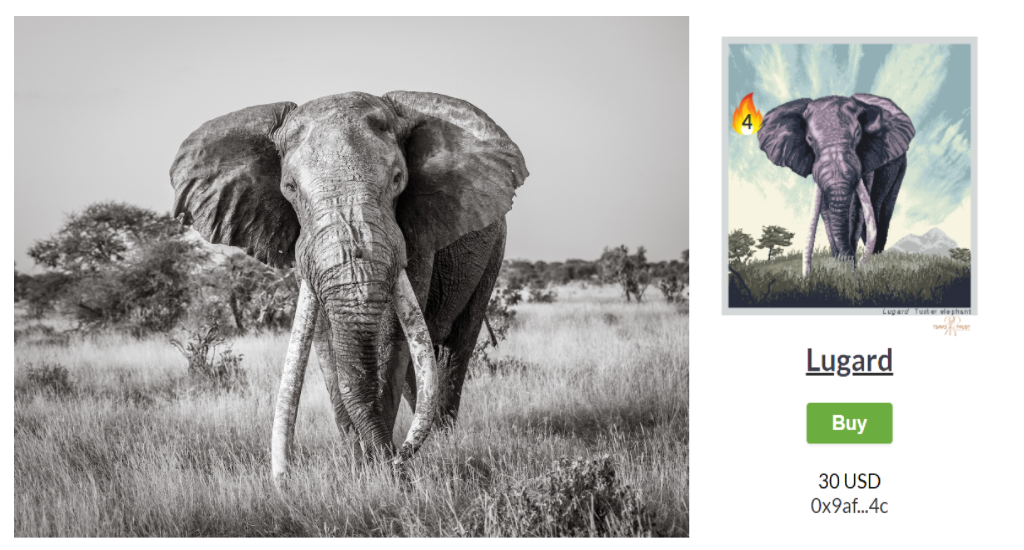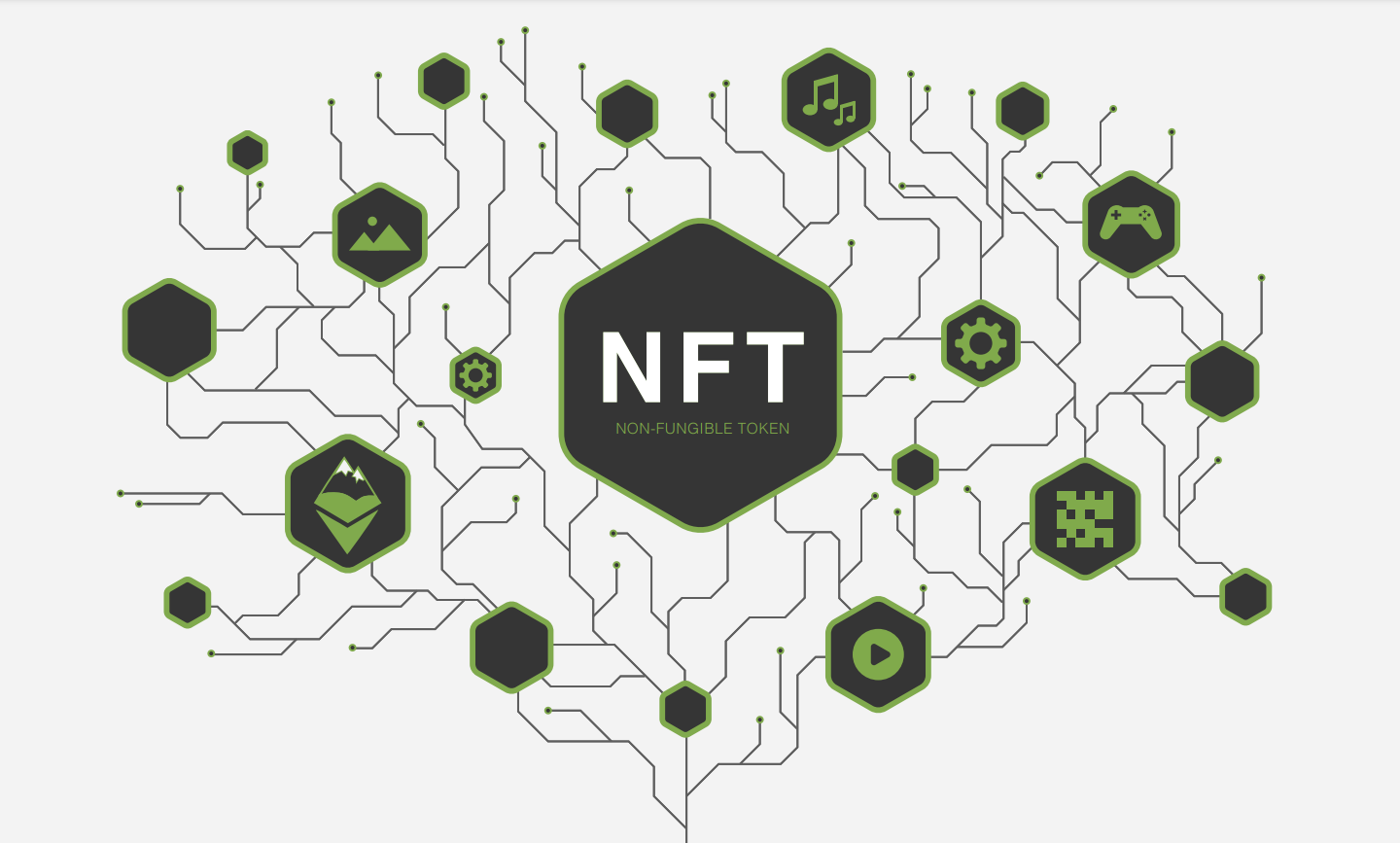Tech innovation: Solving wildlife conservation's greatest challenge
Rio Button
August 24, 2021 · 7 min read
Tech start-up Wildcards has raised over 130,000 USD for conservation organisations around the world since its inception a year and a half ago.
“Funding is our biggest challenge,” I hear this over and over again from wildlife conservation organisations, and I know the feeling all too well. “I hear you, I’m a conservation biologist.” I’m working with Wildcards, an innovative tech start-up with a unique solution to funding wildlife conservation. Wildcards is the first platform to allow continuous, direct and transparent philanthropic commitments to conservation on a global scale. Only founded a year and a half ago, the tech startup has already raised more than 130,000 USD for 29 wildlife conservation organisations partners throughout Africa, North America, South America, and Asia.
Where does the money come from?
A unique base of philanthropists, cryptocurrency rookies and kingpins (including Etherium co-founder Vitalik Buterin) alike fund conservation through Wildcards. “I believe that innovative technologies such as blockchain and cryptocurrencies have the potential to connect new audiences to conservation, changing how we interact with and unite as a global community to protect our planet’s precious biodiversity,” Wildcards very first conservation partner the Wild Tomorrow Fund’s co-founder and COO Wendy Hapgood explains.

Wildcards co-founder, Jason Smythe (left back), and conservation partnership manager, Rio Button (right back), are shown the progress of the Wild Tomorrow Funds rewilding project by the Fund’s Tori Gray (front) in KwaZulu-Natal, South Africa. The Wild Tomorrow Fund is Wildcards oldest conservation partner. They are rewilding old farmland to create a wildlife corridor between the iSimangaliso Wetland Park and the MunYaWana Conservancy. Most of the over US $30,000 Wildcards raised for the Wild Tomorrow Fund was contributed to purchasing this wildlife corridor. Photo by Stefan Möhl.
The Wild Tomorrow Fund
Wildcards have raised US $30,000 for the Wild Tomorrow Fund since it launched a year and a half ago. The Wild Tomorrow Fund is using the funds to restore the natural connection between the mountains and the ocean in north eastern South Africa. This will enable black rhino, African wild dogs, elephants, lions, leopards, cheetah, hyena and other threatened species to once again move across the landscape. They are creating a wildlife corridor, linking two existing large-scale wildlife reserves: iSimangaliso Wetland Park and the MunYaWana Conservancy. The funds generated by their wildcards are paying off the corridor of land, called the Greater Ukuwela Nature Reserve, which was recently afforded protected area status. This is just the work of one of Wildcards 29 conservation partners. Other partners include BioS, which conserves Peru’s Pampas cats; MareCet, which advocates for marine mammals in Malaysia, where most of the population don’t know these creatures exist in their countries waters; and Tsavo Trust, which protects Kenya’s super tuskers — elephants whose tusks are so long they scrap the ground.

How does, Wildcards work?
Wildcards is an online platform where animal non-fungible tokens (NTFs), called wildcards, are sold to raise funds for the conservation organisations that protect the animals on the wildcards in real-time. NFTs are digital assets that represent items such as illustrations, photos, videos, and other types of digital files. They are stored on a blockchain, a digital ledger, that certifies the asset is unique and who the exclusive owner is. Wildcard owners are “guardians” of the animals on their cards, while they own the cards they donate to the conservation organisations that protect the animals on their cards. Guardians stand to make a profit, contribute transparently to wildlife conservation, and display their wildcard crypto artwork all the while learning and having fun.

Aren’t NFT’s bad for the environment?
Yes, some NFTs are bad for the environment, because the blockchain networks they are on guzzle electricity! This is because most types of electricity production spew out carbon dioxide fueling climate change, which has dire consequences for the environment. Wildcards recognised this and switched from Mainnet Ethereum to the Polygon network. Polygon secures its transaction using proof of stake instead of the energy-hungry original blockchain securing proof of work mechanism. Thanks to this, the Wildcards platform has all the benefits of blockchain without the environmental costs of older blockchain networks!
Blockchain benefits
The flow of money through Wildcards is transparent and traceable because transactions take place on a blockchain. Blockchains are open public ledgers, duplicated and distributed between the computers of users of that blockchain. You can only buy wildcards using cryptocurrencies at the moment. However, the Wildcards tech team are working on mechanisms to accept government currencies. They want anyone with an email address and a credit card to be able to buy wildcards with just a few clicks. Crypto funds are beneficial because they can be moved around the world without paying international transaction fees. There are still some fees involved in conservation organisations converting their funds to their local currency depending on where they are and how they are converting the funds, however, these are lower than traditional international banking fees and are decreasing as more global commerce moves onto blockchains and technology improves.
The mechanics of Wildcards
When a guardian buys a wildcard, they must set the price they are willing to sell it for. Every month, the guardian of the wildcard gives a specified portion of the price they are willing to sell that wildcard for, to the conservation organisation that helps conserve that animal.
For example, a guardian buys a wildcard, sets its selling price to US$100, then because that wildcard has a 20% monthly donation they give US$20 a month to the conservation agency that animal represents.
At any point, someone can buy the wildcard from them, if they are willing to pay the selling price that was specified because wildcards are always for sale. When someone buys the wildcard, they must set a selling price. The new guardian of the wildcard is then responsible for giving the new monthly donation. And so, the cycle continues the generation of funds for the conservation organisation.
Why did I join Wildcards?
For me, as a conservation biologist, it’s really inspiring that a group of computer scientists who could be making megabucks working for big tech giants like Amazon have chosen instead to dedicate a large portion of their time to develop Wildcards. A year ago I joined the Wildcards team and am proud to be part of this platform that helps solve conservations’ biggest challenge…fundraising. Wildcards allow conservationists to get on with what matters most to them — saving our planet’s wildlife.
Can Wildcards help conservation you care about?
Wildcards is partnering with grassroots and multinational conservation agencies from around the world who are saving wildlife on the ground. You can suggest conservation partners to us by reaching out via social media or email. We do background checks and vet potential conservation partners before inviting them to apply for partnership with us. To be a conservation partner organisations must:
- Make a tangible difference to wildlife conservation
- Be eager to share stories about the animals they conserve with us
- Be a registered non-profit organisation (or their countries equivalent)
Please help us find and fund conservation organisations saving wildlife on the ground.

Twitter: @wildcards_world
Facebook: @wildcards.conservation
Instagram: @wildcards_world
Join us on Discord
Written by Rio Button. She lives in sunny Sedgefield, South Africa, managing Wildcards conservation partnerships and consulting on environmental and science communication projects. You can reach her at rio@wildcards.world.

Dr Seahorse’s journey
From unravelling seahorses’ secret sounds to safeguarding the habitat of these little super dads. St...
Rio Button
June 29, 2022 · 5 min read
What wild animal leaves teddy bear footprints behind?
Photo by Helena Atkinson. Photo by Helena Atkinson. Here are some clues… Using their sticky tongues,...
Rio Button
February 07, 2022 · 9 min read
Tech innovation: Solving wildlife conservation's greatest challenge
Tech start-up Wildcards has raised over 130,000 USD for conservation organisations around the world ...
Rio Button
August 24, 2021 · 7 min read
Curious creatures under persecution
From having a deep fear of sharks to defending them. Reluctant, Grant Smith tumbled backwards off t...
Rio Button
July 26, 2021 · 8 min read
NFT Postcards for a purpose
NFT Postcards for a purpose A limited edition set of NFTs has been created in partnership with the T...
Jason Smythe
April 01, 2021 · 2 min read
Do you Care for Wild?
As rhino poaching soars, what happens to the orphaned rhino calves left behind? An orphaned baby bla...
Rio Button
February 24, 2021 · 7 min read
Where the wild things roam
South Africa’s most Endangered carnivore can’t be kept in by fences. Wildcards chatted to the man re...
Rio Button
February 23, 2021 · 10 min read
Rumours of an elusive feline in the mangrove forest
While collecting data in San Pedro de Vice Mangroves, in the Sechura desert, final year biology stud...
Rio Button
December 23, 2020 · 8 min read
South Africa’s last remaining white shark stronghold under threat
The Oceans Research Institute battles the impact of demersal longline fishing to safeguard great whi...
Rio Button
November 25, 2020 · 8 min read
Malaysia has marine mammals?
90% of Malaysians don’t know there are dolphins and whales in Malaysian waters There are at least 6 ...
Rio Button
November 17, 2020 · 9 min read


.](https://cdn-images-1.medium.com/max/3200/0*ASfRkOfaRHnSidkk)